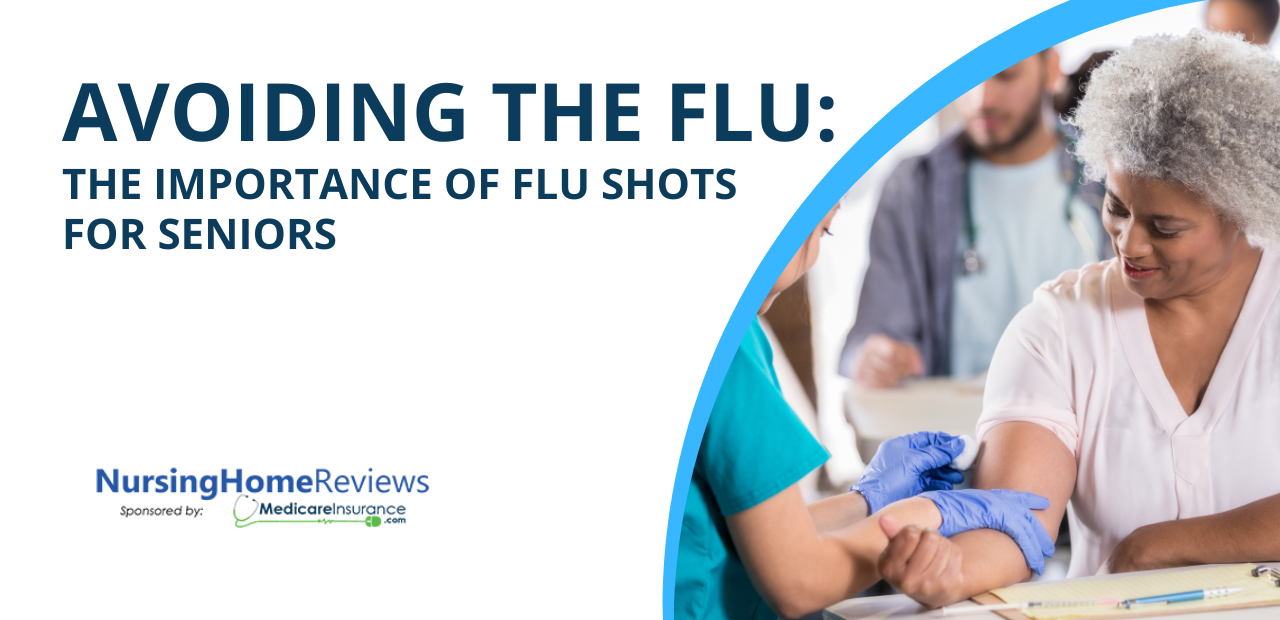
How important is it for seniors to protect themselves against the flu?
These days, each and every one of us is all too familiar with viral diseases and how they transmit. Likewise, many of us are probably quite sick of hearing about vaccines, immunization, and inoculation.
Still, the vast majority of healthcare providers and educated experts strongly encourage getting vaccinated for preventable diseases. One of the most common diseases that can be prevented through the use of a safe and effective vaccine is seasonal influenza, a.k.a — the flu.
With the winter season knocking at our door, this unwelcome visitor is primed and ready for its grand return. While many of us think of the flu as a few days of unpleasant cold-like symptoms, the reality is that for seniors, contracting this disease can easily have deadly consequences, especially for older individuals who are also at a higher risk of other common health problems.
Unfortunately, complications such as pneumonia are quite common among this demographic, as seniors account for approximately 85 percent of flu-related deaths and 70 percent of flu-related hospitalizations each and every year.
Luckily, modern medicine has afforded us quite a useful tool which can be used to combat this nasty pestilence and even save the lives of millions of American seniors — the annual flu vaccine.
What is the senior flu shot?
Considered to be the gold standard when it comes to safeguarding you and your loved ones against annual influenza, flu shots for seniors is currently the most effective way to protect yourself and others from contracting the flu. The best part? This modern medicinal miracle is easily accessible at your doctor’s office or your local pharmacy almost every year.
How does the senior flu shot work?
Getting your annual senior flu shot is a safe and effective way to help yourself and millions of people stay healthy each and every year. The commonly used form of this vaccination is also known as the inactivated influenza vaccine.
The inactivated influenza vaccine contains killed influenza viruses that are incapable of causing the disease, but still carry organism material that your body will recognize, helping train your immune system to fight against living versions of the virus that you may unintentionally pick up during flu season.
Some minor side effects, such as redness, soreness, swelling, minor headaches, minor muscle aches, minor fever, and fatigue have been reported, but these side effects are simply a result of your immune system working properly and usually resolve after a few hours or days.
Rest assured, any side effects you might possibly encounter are nothing compared to flu symptoms seniors could experience as a result of contracting the disease itself. That being said, you should absolutely consult your doctor for advice if you have a condition that may make you more susceptible to vaccine side effects or if you have additional questions or concerns about the vaccine.
When should I get my senior flu shot?
It’s important for seniors to get their annual flu shot each year before flu season is in full swing. Usually, flu season begins in late November and ends in early April. Annual flu shots are usually available beginning in October of each year.
In addition to the annual flu shot, seniors should also get inoculated for pneumococcal disease and COVID-19, including any boosters that are recommended by your doctor. By doing so, you can decrease your risk of getting sick and increase your likelihood of living a healthy and comfortable life well into your golden years.

What else can I do to stay healthy?
Influenza, pneumococcal disease, COVID-19, and other infections that could be potentially dangerous to seniors can also be kept at bay by taking care of your body and your personal hygiene.
In addition to getting vaccinated, some tried and true ways of staving off potential infection include:
- Washing your hands properly and frequently
- Cleaning and disinfecting objects and surfaces that are touched by yourself and others frequently
- Promptly disposing of medical waste and used tissues in a wastebasket or trash can
- Covering your mouth with your elbow when coughing or sneezing
- Staying home and avoiding others if you are feeling ill
- Limiting close contact with others
- Wearing a face mask
- Practicing self-care through the use of proper vitamins, healthy diet, and exercise
- Avoiding touching your face, eyes, nose, or mouth as much as possible
By being responsible and taking care of yourself properly, you can feel much more at ease this flu season. For additional information about preventing the spread of disease or the vaccinations that are currently available to you, don’t hesitate to reach out to your reliable health care provider or professionally trained doctor as soon as possible.





